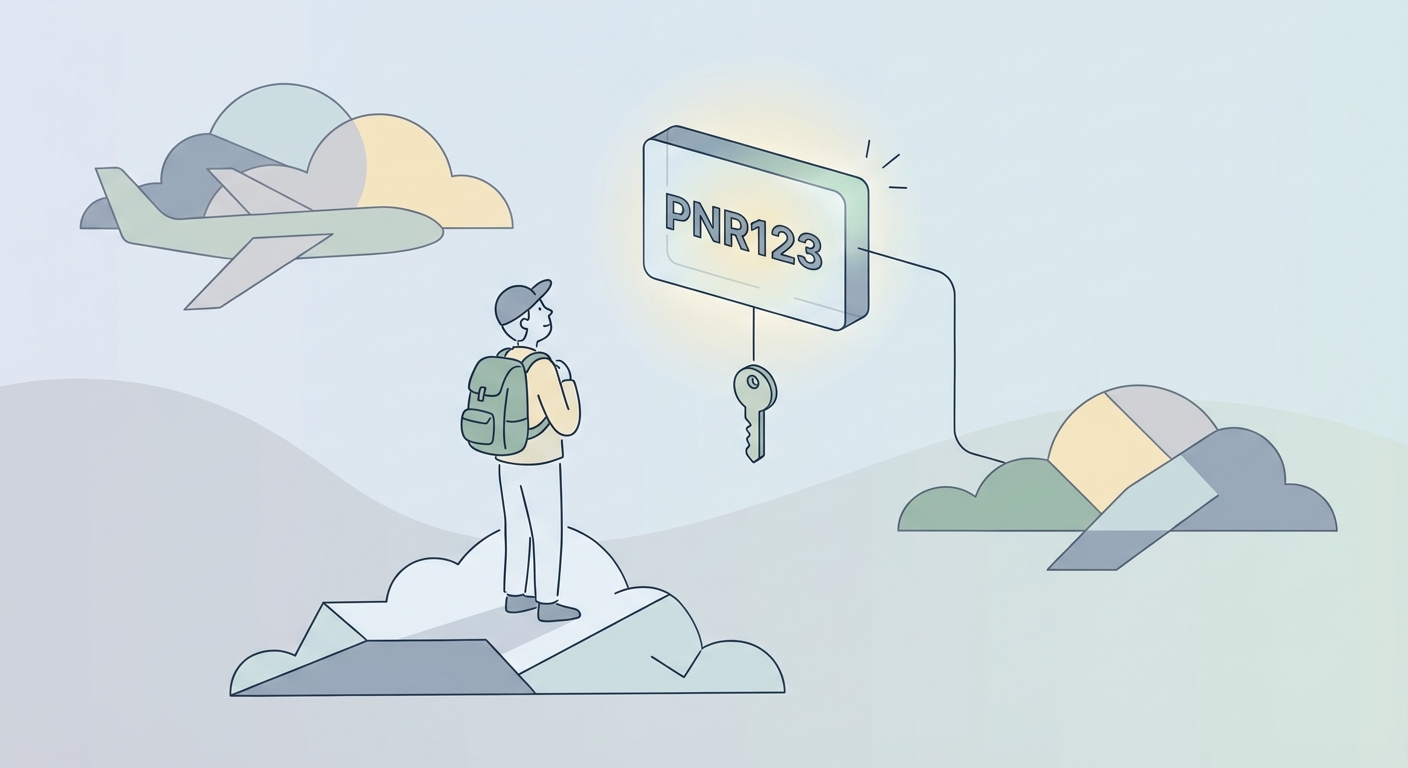Navigating the Turbulence: How Geopolitics Impacts Your International Adventures
Understanding the Geopolitical Landscape: A Traveler's Primer
Did you know that a seemingly distant conflict can impact the cost of your flight? Understanding the geopolitical landscape is now essential for every international traveler. It helps you navigate potential risks and unexpected changes.
Geopolitics examines how geography and politics intersect to shape international relations. In simple terms, it's about how a country's location, resources, and relationships with other nations influence its actions on the world stage.
- Geopolitics is the study of how geography and politics influence international relations.
- Travel is directly impacted, influencing destination safety, accessibility, and the cultural experiences you encounter. For instance, political instability can lead to travel advisories or border closures.
- Staying informed allows you to make responsible travel decisions, ensuring enjoyable and secure adventures.
Certain regions are currently experiencing heightened geopolitical tensions. Awareness of these hotspots is crucial for planning safe and fulfilling trips.
- Ongoing Conflicts: Active conflict zones may pose direct risks to travelers. The Russia-Ukraine conflict, for example, has disrupted travel routes and increased insurance costs.
- Political Instability: Regions with unstable governments or social unrest can be unpredictable.
- Economic Tensions: Trade wars and sanctions can affect travel costs and accessibility. As Global Trade Magazine reports, geopolitical disputes often escalate into trade wars, increasing the cost of imported goods and disrupting supply chains.
- Examples: Current hotspots include the Russia-Ukraine conflict, tensions in the Middle East, and the South China Sea.
Local events can have far-reaching consequences for global travel. Understanding these connections helps you anticipate potential disruptions.
- Interconnectedness: Regional conflicts can affect international routes and prices. Flight paths may be altered to avoid conflict zones, leading to longer travel times and higher fuel surcharges.
- Supply Chain Disruptions: Conflicts can disrupt supply chains, leading to delays and shortages impacting travel logistics.
- Shifting Alliances: New political relationships can create both travel opportunities and restrictions.
Staying informed about the geopolitical landscape is the first step in planning successful and responsible international adventures. Let's dive into how to identify current geopolitical hotspots and assess their potential impact on your travel plans.
The Direct Impacts: How Geopolitics Changes Your Travel Plans
Geopolitical events can feel like distant rumblings, but they often send shockwaves through the world of travel. How do these global tensions directly impact your carefully laid international adventure plans?
Geopolitics significantly influences travel through advisories and restrictions. It's crucial to understand how these measures can alter your itinerary.
- Understanding Advisories: Governments issue travel advisories to inform citizens about potential risks in foreign countries. These warnings range from general caution to recommendations against all travel. Always check your government's travel advisories before booking a trip.
- Visa and Entry Requirements: Political tensions can lead to sudden changes in visa policies. For example, strained relations between countries might result in stricter visa application processes or even temporary visa suspensions. To stay updated, regularly check the official embassy websites of your destination country or consult your country's foreign affairs department. Reputable travel agencies often have dedicated sections for visa information too.
- Travel Bans: In extreme cases, geopolitical events can trigger travel bans. These bans may target specific nationalities or regions, preventing travel altogether. Be aware of potential travel bans and explore alternative destinations if necessary.
Unstable geopolitics often translates to increased travel costs. Planning your budget requires an understanding of these economic impacts.
- Airfare Fluctuations: Geopolitical events can cause significant volatility in airfares. Conflicts or political instability can disrupt flight routes, leading to longer journeys and higher fuel costs, ultimately increasing ticket prices.
- Currency Exchange Rates: Political uncertainty often impacts currency values. A country experiencing instability may see its currency weaken, affecting the purchasing power of travelers and increasing the cost of goods and services.
- Insurance Premiums: Travel insurance companies assess risk based on geopolitical stability. Destinations deemed high-risk will likely have higher insurance premiums to cover potential medical or security-related expenses.
Your safety should always be the top priority. Geopolitical factors can create security challenges that require careful consideration.
- Terrorism Threats: Some regions face a higher risk of terrorist attacks due to geopolitical tensions. Research the current threat level in your destination and take necessary precautions.
- Civil Unrest: Political instability can lead to protests, riots, or other forms of civil unrest. Avoid areas with a history of political violence and monitor local news for potential disruptions.
- Cybersecurity Risks: Unstable regions may have weaker cybersecurity infrastructure. Protect your data and devices from potential cyber threats. This means using VPNs (Virtual Private Networks) when on public Wi-Fi, enabling two-factor authentication on all your accounts, and being extra cautious about clicking links or downloading attachments from unknown sources. Avoid conducting sensitive transactions like online banking when using unsecured networks.
Understanding how geopolitics affects safety and security, travel cost and advisories is essential for planning responsible international adventures. Now, let's explore how to identify current geopolitical hotspots and assess their potential impact on your travel plans.
The Indirect Consequences: Beyond the Headlines
Did you know that geopolitical tensions can affect the cultural experiences you have while traveling? The impact extends beyond just safety advisories and flight costs.
Navigating cultural nuances becomes even more crucial in politically charged environments. Travelers should research local customs and traditions to avoid unintentional offenses.
- For example, seemingly innocent gestures or attire can be misinterpreted in regions with strong political or religious sensitivities.
- Understanding historical context is essential; what might be acceptable in one area could be taboo in another.
Geopolitical issues often amplify existing social divisions. It's essential to recognize potential tensions between different groups within a society.
- Be aware of sensitive topics and avoid taking sides in local disputes.
- For instance, in regions with ongoing political unrest, expressing opinions on local politics can lead to uncomfortable or even dangerous situations.
- Respect for diverse perspectives is key to fostering positive interactions.
Navigating politically sensitive areas requires a thoughtful approach. Prioritize respectful communication and cultural immersion.
- Learn a few basic phrases in the local language. Even a simple "hello" or "thank you" can show respect and willingness to engage with the local culture.
- Engage with local guides and experts to gain a deeper understanding of the region's history, culture, and political landscape. They can provide valuable insights and help you avoid potential pitfalls.
Geopolitical instability can ripple through supply chains, causing unexpected disruptions to your travel plans.
- Flight cancellations can happen due to airspace closures or rerouting, leaving you stranded or needing to make last-minute changes. Pack essential medications and supplies in your carry-on bag.
- Accommodation shortages may occur if hotels are affected by unrest or used for emergency housing. Consider booking refundable accommodations when available.
- Limited access to resources like food, water, or medical supplies can arise in areas experiencing conflict or political instability. Pack a basic first-aid kit and be prepared to adapt your plans.
The current global climate is marked by what some call "weaponized uncertainty." This means that instability isn't accidental; it's a deliberate strategy.
- Be aware that policies can change suddenly, affecting travel regulations and entry requirements. Stay updated on the latest news and advisories from reliable sources.
- Misinformation and disinformation can spread rapidly, making it difficult to discern truth from falsehood. Cross-verify information from multiple outlets before making decisions.
- Develop adaptability in your travel plans to accommodate unexpected events. Have backup plans and be prepared to adjust your itinerary as needed.
Staying informed and adaptable helps you navigate the indirect consequences of geopolitics. Let's explore how to identify current geopolitical hotspots and assess their potential impact on your travel plans.
Travel Smart: Tools and Strategies for Navigating Geopolitical Risks
Planning an international trip can feel like navigating a minefield, but with the right tools, you can explore the world with confidence. The key is to travel smart by staying informed and adaptable.
One of the most important steps in mitigating geopolitical risks is to have access to reliable information. Knowing where to find accurate, up-to-date details can make a big difference in your safety and peace of mind.
- Government Travel Advisories: Governments issue travel advisories to inform their citizens about potential risks in foreign countries. These advisories range from general caution to recommendations against all travel. Always consult the official travel advisory websites of your home country and any countries you plan to visit.
- Reputable News Outlets: Relying on established news organizations for accurate reporting is crucial. Look for news sources with a reputation for unbiased, fact-checked journalism. Cross-verify information from multiple outlets to get a well-rounded perspective.
- Risk Assessment Services: Consider professional risk assessment services for detailed analysis. Companies like Stratfor, Control Risks, or IHS Markit offer subscription-based services that provide in-depth reports and real-time updates on potential threats, helping you make informed decisions about your travel plans. These services are often geared towards businesses but can offer valuable insights for individual travelers too.
Travel insurance is your safety net when things go wrong. Make sure you understand your policy's coverage and how it applies to potential geopolitical disruptions.
- Comprehensive Coverage: Ensure your travel insurance covers potential disruptions due to geopolitical events. Check if your policy includes trip cancellation, interruption, and medical evacuation coverage.
- Evacuation Plans: Understand your insurance policy's evacuation provisions. Know what steps to take if you need to be evacuated from a country due to a crisis. Keep emergency contact information readily accessible.
- Emergency Contacts: Keep important contact information readily accessible. Have your insurance company's emergency hotline, local embassy or consulate details, and contacts for local authorities.
Rigid itineraries can quickly unravel in the face of geopolitical events. Embrace flexibility and be prepared to adjust your plans as needed.
- Open-Ended Itineraries: Avoid rigid schedules to allow for unexpected changes. Build buffer time into your travel plans to accommodate potential delays or disruptions.
- Alternative Destinations: Identify backup destinations in case of unforeseen events. Research nearby countries or regions that offer similar experiences but are less exposed to geopolitical risks. For example, if tensions rise in a popular Southeast Asian destination, consider exploring a less-visited island in the Pacific.
- Embracing the Unexpected: View travel disruptions as opportunities for new adventures. Be open to changing your plans and exploring unexpected destinations.
By using reliable sources, having insurance and being flexible, you can handle geopolitical risks. Let's discuss how to choose destinations that align with your risk tolerance.
Explore with Confidence: Your Next Adventure Awaits
Did you know you can use ai to plan your next adventure? As geopolitical tensions shift, exploring the world with confidence means embracing new travel strategies.
- AI-Powered Planning: Imagine having a personal travel assistant that crafts your dream vacation. Gotriply uses ai to create personalized itineraries, recommending destinations and activities based on your interests and risk tolerance. To use it, you'd typically visit their website or app, input your travel preferences (like desired activities, budget, and comfort level with risk), and the ai would generate tailored suggestions.
- Tailored Experiences: Forget generic travel packages! Gotriply provides recommendations for activities, attractions, and local experiences. This helps you immerse yourself in a destination's culture while staying safe and informed.
- Booking Assistance: Travel planning can be overwhelming. Gotriply can assist with booking hotels and activities, ensuring a smooth, incredible trip.
Plan your dream vacation with these ai-powered features. You can travel smarter and experience the world on your terms.
Beyond the Tourist Trail: Consider venturing off the beaten path. Discovering alternative destinations with fewer geopolitical risks can lead to unique and rewarding experiences. For instance, instead of a well-trodden European capital, you might explore the Balkans, or in South America, consider Uruguay over more volatile neighbors. The criteria for these recommendations often include political stability, lower crime rates, and less international media attention on conflict.
Supporting Local Communities: By choosing less-visited areas, you contribute to sustainable tourism. This helps boost the local economy and preserve cultural heritage.
Unique Cultural Experiences: Escape the crowds and immerse yourself in authentic cultures. These destinations often offer a more intimate and enriching travel experience.
Supporting Local Businesses: Prioritize local businesses and services during your travels. This helps boost the local economy and fosters a sense of community. Look for locally owned guesthouses, restaurants that source ingredients from nearby farms, and artisans selling their crafts.
Engaging with Locals: Build meaningful connections with residents for a richer cultural experience. Learning from their perspectives can provide insights into the region's history and current events.
Respecting Local Perspectives: Be mindful of local customs and traditions. Understanding and appreciating diverse viewpoints on geopolitical issues is key.

By connecting with communities, you gain a deeper understanding of the world. As you plan your next adventure, remember the importance of responsible travel.
In the final section, we'll discuss how to choose destinations that align with your risk tolerance.
Case Studies: Learning from Past Geopolitical Events
History offers invaluable lessons for today's travelers, especially when it comes to understanding how geopolitical events can reshape international adventures. Examining past events provides a framework for anticipating and navigating future challenges.
The Arab Spring uprisings, beginning in 2010, illustrate how political unrest can dramatically impact tourism. Countries like Egypt and Tunisia, once popular destinations, experienced significant declines in tourist arrivals due to safety concerns.
- Immediate Impact: Political instability led to travel advisories and cancellations, causing immediate economic hardship for local businesses.
- Long-Term Effects: Some regions struggled to regain their previous tourism levels, highlighting the lasting impact of geopolitical events on a destination's image.
- Adaptation: Tourism businesses adapted by focusing on domestic tourism and adjusting their marketing strategies to emphasize safety and security.
The ongoing Russia-Ukraine conflict serves as a stark reminder of how geopolitical events can disrupt travel. Airspace closures and sanctions have had cascading effects on flight routes and accessibility.
- Airline Rerouting: Airlines rerouted flights to avoid conflict zones, leading to increased travel times and fuel costs.
- Sanctions: Sanctions imposed on Russia, such as financial sanctions that restrict access to international banking systems and travel bans on specific individuals, impacted travel to and from the country. These measures affected both business and leisure travelers, making transactions difficult and limiting entry for many.
The COVID-19 pandemic, while primarily a health crisis, also had significant geopolitical dimensions. Border closures and travel bans became commonplace, and international travel ground to a halt.
- Border Closures: Countries implemented unprecedented border closures and travel bans, often influenced by national interests and differing political approaches to the pandemic.
- Vaccine Nationalism and International Cooperation: The distribution of vaccines became a geopolitical issue, with "vaccine nationalism" leading to unequal access and impacting the pace of international travel recovery. The lack of coordinated global responses also exacerbated disruptions.
- Health Protocols: Vaccine requirements and health protocols added new layers of complexity to international travel.
- Global Supply Chain Disruptions: The pandemic highlighted the fragility of global supply chains, affecting everything from the availability of flights to the amenities offered at hotels.
- Shift in Tourism: The pandemic reshaped travel patterns, with a greater emphasis on domestic and regional tourism.
Learning from these past events can help travelers better prepare. Let's look at how to choose destinations that align with your risk tolerance.
The Future of Travel: Embracing Resilience and Responsibility
The world is more connected than ever, but this also means geopolitical tensions can quickly impact travel. To navigate this complex landscape, resilience and responsibility are key for future adventures.
Support local economies: Choose businesses that prioritize local communities. This ensures your money benefits residents, not just large corporations. When in doubt, ask if a business is locally owned or employs local staff.
Minimize your footprint: Look for eco-friendly accommodations and transportation. Reducing your impact helps preserve destinations for future travelers. This could mean opting for public transport, reducing waste, or choosing tours that have a low environmental impact.
Respect cultural heritage: Learn about local customs and traditions. This shows respect and helps avoid unintentional offense. Before you go, do a quick search for "cultural etiquette in [destination]" to get a good overview.
Consider human rights: Research the human rights record of potential destinations. Support ethical tourism that protects vulnerable populations. Resources like Amnesty International or Human Rights Watch can provide valuable information on a country's human rights situation.
Avoid exploitation: Ensure your travel choices do not contribute to exploitation. Look for fair wages and safe working conditions in the tourism industry. Be wary of tours or activities that seem too cheap, as they might rely on exploitative labor practices.
Promote responsible consumption: Make educated choices about the products and services you buy. Support local artisans and businesses that value sustainability. Think about where your souvenirs come from and if they are ethically produced.
Build bridges: Use travel as an opportunity to connect with people from different backgrounds. Engage in meaningful conversations and learn from diverse perspectives. Even a simple chat with a local shopkeeper can be a bridge-building experience.
Promote dialogue: Discuss geopolitical issues respectfully. Share your experiences to foster understanding and empathy. Listen more than you speak, and be open to different viewpoints.
Inspire change: Encourage others to travel responsibly. Promote sustainable and ethical practices in your own community. Share your positive experiences with responsible travel on social media or with friends.
By embracing resilience and responsibility, you can navigate geopolitical challenges. You can create positive change through your international adventures.





